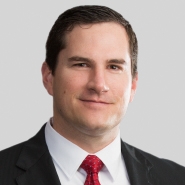Supreme Court of Ohio to decide three cases regarding subsurface rights
Ohio landowners and holders of mineral interests should soon receive clarification regarding certain mineral rights. On Sept. 1, 2020, the Supreme Court of Ohio accepted Fonzi v. Brown for review, a case involving the Ohio Dormant Mineral Act (ODMA). Fonzi joins Gerrity v. Chervenak and West v. Bode, as the third major case on the Court’s docket that raises questions about the ODMA and/or Marketable Title Act (MTA).
The Ohio General Assembly enacted the ODMA, which is part of the MTA, to facilitate title transactions and to establish a framework to resolve disputes over mineral title ownership between the owners of severed mineral interests and the owners of surface rights. However, the ODMA has consistently left landowners and mineral interest holders with more questions than answers regarding their rights.
Fonzi and Gerrity should shed light on how much, and what kind of, due diligence is required by a surface owner to identify and locate holders of old, severed mineral interests before resorting to publication notice under the ODMA, while West will explore whether the ODMA, MTA, or both, apply to severed mineral interests. Further discussion of each case follows.
- In Fonzi v. Brown, Case No. 2020-0773, the appeals court found that surface owners did not meet the reasonable due diligence standard required by the ODMA in failing to search for mineral interest holders in Pennsylvania when the severance deed indicated the grantors’ specific township and county. The surface owner filed his notice of abandonment by publication after conducting a search of the public records in the county where his property was located, as well as a brief internet search. The Supreme Court of Ohio’s decision in Fonzi may help clarify: (1) the scope of research required before a surface owner may serve notice under the ODMA by publication; (2) the mineral interest holder’s burden in challenging sufficiency of notice; and (3) the respective rights of the parties if a surface owner asserts that no savings events occurred twenty years prior to the abandonment notice.
- In Gerrity v. Chervenak, Case No. 2019-1123, surface owners searched county records and sent the record holder notice by certified mail of their intention to merge estates. The notice was returned undelivered and further notice was published by newspaper. However, the holder of the severed mineral interest alleged that he wasn’t properly notified of the surface owners’ actions and he still owned the mineral rights. The Supreme Court of Ohio’s decision in Gerrity will likely determine the necessity of sending notice by certified mail. Gerrity may also shed light on whether a surface owner may confine their due diligence to the public records in the county where the minerals are located, and/or whether it is necessary to conduct internet research, or other kinds of research, before resorting to publication notice under the ODMA.
- West v. Bode, Case No. 2019-1494, involves competing claims of ownership to a severed royalty interest between the surface owners, who claim extinguishment of the royalty interest by operation of the MTA, and the heirs of the royalty interest holders, who argue that the more specific provisions of the ODMA exclusively control divestiture of severed mineral interests. The Supreme Court of Ohio’s decision in West will likely address whether the MTA operates independently of, or coextensively with, the ODMA to extinguish severed mineral interests. Specifically, the Court’s decision should clarify whether the ODMA, as a specific statute, supersedes the MTA, as a general statute, and whether the ODMA provides the exclusive provisions to terminate a mineral interest.
Regardless of what it determines, the Supreme Court of Ohio’s decisions in Fonzi, Gerrity and West are nearly certain to have a significant impact on claims between surface owners and mineral interest holders for valuable mineral interests.
For more information, contact Chris Baronzzi or any member of Weil Brown's Oil and Gas Practice Group.



